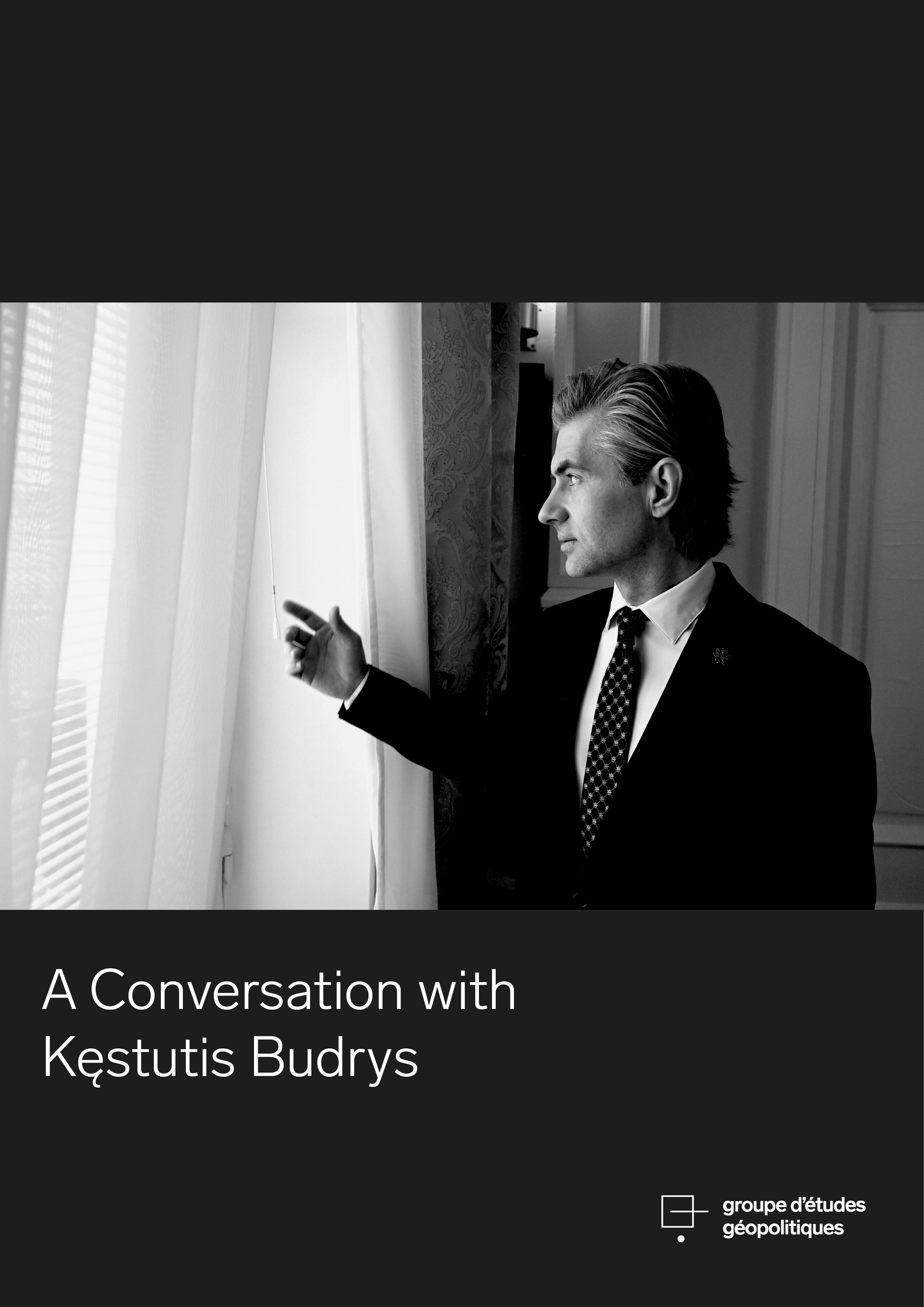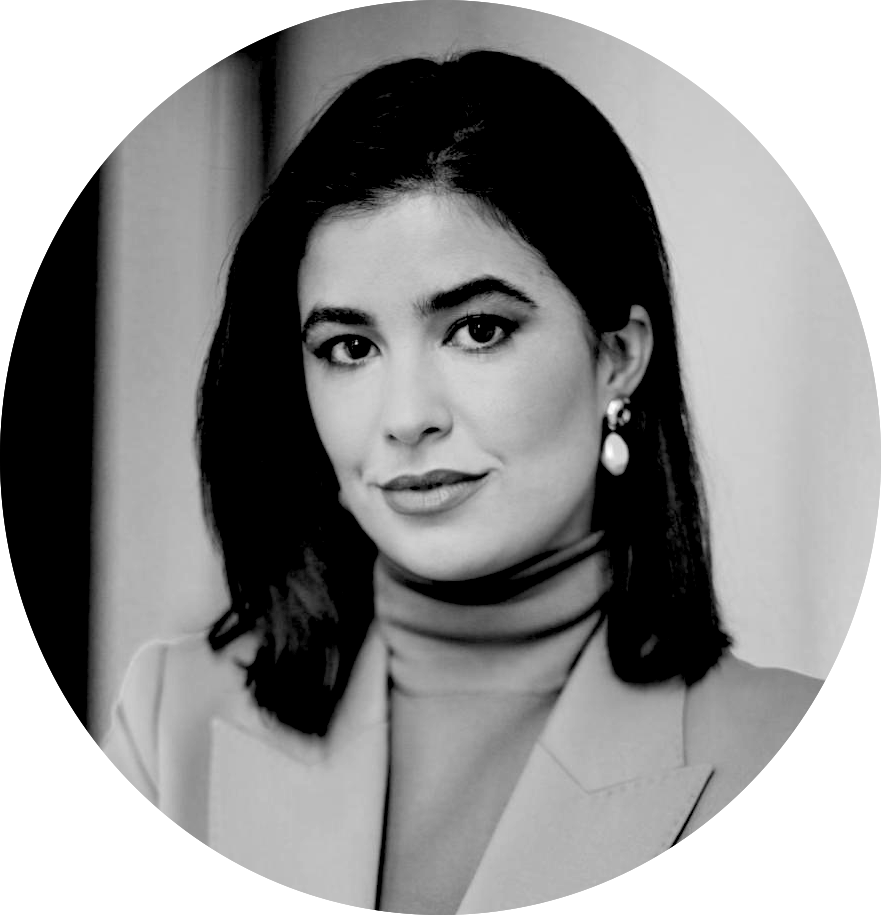A conversation with Kęstutis Budrys, Lithuanian Minister for Foreign Affairs
Maria Tadeo
Grand Continent EU Correspondant26/02/2025

A conversation with Kęstutis Budrys, Lithuanian Minister for Foreign Affairs

Maria Tadeo
Grand Continent EU Correspondant26/02/2025

 Voir tous les articles
Voir tous les articles
A conversation with Kęstutis Budrys, Lithuanian Minister for Foreign Affairs
Ukraine, the country that has been invaded, is now treated more harshly by the United States than the invader, Russia. Zelensky has been described as a dictator preventing elections and Kyiv is being pushed into accepting a deal on minerals. Can the European Union turn this scenario around?
The European Union has all the tools to act. The foundations of international law and international order are still there. We have not forgotten who is the aggressor and who is the victim. Our role as Europeans is to keep the world in order and to explain who is responsible for what.
We have to take this as our responsibility to do more and to explain to our American friends that certain things they present as facts are not exactly as they describe them. One of them is EU support. Our collective European support is more than that of the US. It is not enough – we have to do more for Ukraine to prevail. We have to stay united and maintain our position of sanctions and military support. We have to keep the pressure on Russia, because it is the aggressor. We have to call things what they are. This is not just a ‘conflict’. This is not just a war that started for unknown reasons. We know why it started and who started it. Russia invaded a democratic country because it decided to take a different path away from Moscow.
Our duty is to make this clear and be on the right side of history, because all of us will be judged for the actions we take in Ukraine.
Has Europe’s position on the organisation of elections in Ukraine changed following President Trump’s comments?
I find this discourse dangerous because it aims to create internal tensions and destabilise Ukraine. Ukrainians have remained united during the war because they understand that the priority is to defend the country against the aggressor. The narrative that Zelensky is somehow becoming a dictator, plays into Russia’s hands. Moscow would like to see tensions within Ukraine, because this could allow it to achieve what it has failed to do on the battlefield.
We have no doubt that once peace is achieved and the Martial Law is lifted, there will be a fair and free election in Ukraine, just as there was when President Zelensky was democratically elected. When a country is at war, when it is focused on defending itself, and you have a million men and women in uniform, more than 7 million have left the country, the borders are closed, it is extremely complicated to hold an election. I am not even talking about politics, I am talking about the infrastructure that has to be put in place to organise an election in these conditions. The fact that these elections have been postponed is understandable.
Are you surprised that the debate has focused on the personality of President Zelensky and not so much on Vladimir Putin?
This debate is counterproductive. The question of legitimacy is important and the outcome of the discussions will depend on it, but we have to put aside this narrative around Zelenskiy because it doesn’t get to the heart of the matter.
The focus should be on how to create a strong and definitive deterrent against Russia. Putin likes to talk about the roots of this war: the roots are Russian imperialism.
Russia cannot accept that the Soviet Union has collapsed and doesn’t exist any more. Russia is an imperialist country that cannot accept the independence and sovereignty of its neighbours. That’s not just my assessment. Any country bordering Russia will tell you this. They have been involved in wars in all directions since 1991. This is the kind of behaviour that we have to put an end to in Europe and in Ukraine.
The EU and its member states have been sidelined in the US-Russia talks. How do you plan to change that and what can Brussels bring to the table?
Frozen assets and long-term military support.
I know why some colleagues are disappointed that Europe has not been involved in these talks, even when we say: nothing about Ukraine without Ukraine, nothing about Europe without Europe. I say let’s stop complaining. Do we want to be invited? Then let’s work to get a seat at the table. We will not be at the table if we do not prove that we are a geopolitical actor that can deliver results. Russia is not interested in statements and words of support, they are interested in what they see and what they actually experience on the battlefield.
I am convinced that the combination of providing more weapons and seizing Russia’s frozen assets for Ukraine can change the outcome of these negotiations. It would also dismantle one of the strategic objectives of the Russian invasion, which was to demilitarise the country. If we commit ourselves to long-term funding and long-term military support, we’ll ensure that not only will Ukraine not be demilitarised, but it will be equipped to the point where it can deter Russia.
This is the opposite of what Putin wants and will give Europe a voice at the negotiating table. I don’t understand why we are frustrated that Europe does not have a seat.
Why should we be invited if we don’t change our approach and do more?
Do you support the full confiscation of Russia’s frozen assets? Won’t it weaken the euro?
Absolutely, yes. We have put forward our legal arguments and our assessment of the various ways in which we could do this. I am not saying it is an easy task, but I do not think it is impossible. If we put our minds to it, I am confident that we can find a way.
Of course there will be financial and legal risks, but we can mitigate them together. When we talk about risks, there is also the risk of war returning to Europe, it is happening on our borders. If we are talking about a game changer in these negotiations, this is the tool. I simply can’t accept that the confiscation of Russian frozen assets is something that is off the table.
I don’t agree with that premise – and I know many of our colleagues around the table don’t either. At the end of the day, it’s about our security.We can reduce the financial risks together.
Could Ukraine’s accession to the European Union be another game changer? President von der Leyen and President Costa have suggested that this process could be accelerated. How?
Ukraine’s place is in the European Union. I agree that this process should and can be accelerated.
Unlike NATO — where the US does not see it as an immediate solution, although we still believe that it would be the quickest and cheapest way to guarantee Ukraine’s security and peace — member states are the only ones who decide for EU enlargement.
We have put forward 2030 as the date for Ukraine’s accession. We think a date is important because it would force us to mobilise. There are many factors involved and this is not an easy process, but we should do everything we can to help them reform and help them with the administrative burden. This is a process where they can learn from our experience.
I don’t expect enlargement to be one of the elements discussed at the negotiating table for the time being, but it would be a tangible result for Ukraine, especially in the context of four years of war and frustration with the West. In this atmosphere, where some question how long we will stand by Ukraine, whether we mean what we say, accession is very important.
The EU has insisted that it will also keep up the pressure on Russia through sanctions, even as the US suggests that concessions on that front will have to be made as part of the talks. How confident are you that these sanctions will remain in place?
We are maintaining our sanctions and that will not change. We have just adopted the 16th package of sanctions against Russia. I was disappointed that it didn’t include a total ban on Russian LNG imports, but my approach is to focus on the next package. We still have tools on the table that could be used to increase the pressure on Russia. This is very important in the context of the peace talks because the Kremlin needs to feel that pressure so that it is forced to make concessions.
Given the way Trump’s second term started, will the EU and the US drift apart?
We need to change our approach to one that reflects common interests — that is the language Washington is using these days. Talking about values is important, but we also need to emphasise that we have common interests in staying together.
In the language of interests, we need to build a positive agenda with the US.
On defence, on trade, on energy, on technology cooperation, on sharing the burden of security commitments. In Europe we also have our interests. We should be clear about what our interests are, just as the US is clear about what its interests are.
Our interest is to create a more prosperous society through trade and to strengthen our security. For Lithuania, the transatlantic relationship is very important. The same goes for NATO. For the Eastern flank, it is an existential issue. We believe that we must continue to foster this relationship and find common ground with our allies.
I do not believe that we should disengage, even though some of our rivals would like us to do so.
Article 5 is based on the idea that allies would be willing to defend each other on the principle of common security and solidarity. You will defend me and I will defend you, even if there is a cost. In a transactional world, do you still believe in the alliance?
It’s not about belief, it’s about willingness: we are working and increasing our resources to make this Alliance even stronger. Of course we trust NATO. We do not question the value of this Alliance – if we did, we would have to question our security architecture and every security commitment we have made.
NATO is not only about Article 5, it is also about Article 3, which says that there should be no free-riders.
Allies have a duty to invest in defence, and we believe in it. That is why we have announced that in Lithuania we will spend between 5 and 6 % of GDP on defence from 2026 to 2030. We cannot rely on our Allies’ contributions alone. If we want to make NATO stronger, we know what we have to do.
Does Russia still fear NATO?
Russia fears what we do, not what we say. That’s the way they work. They have to see it, they have to feel it. When they see brigades on the eastern flank, that is what they fear. If they see us helping to make NATO stronger, that is what they fear. Whether Russia respects the red line that is NATO depends entirely on us.
citer l'article
Maria Tadeo, A conversation with Kęstutis Budrys, Lithuanian Minister for Foreign Affairs, Feb 2025,




